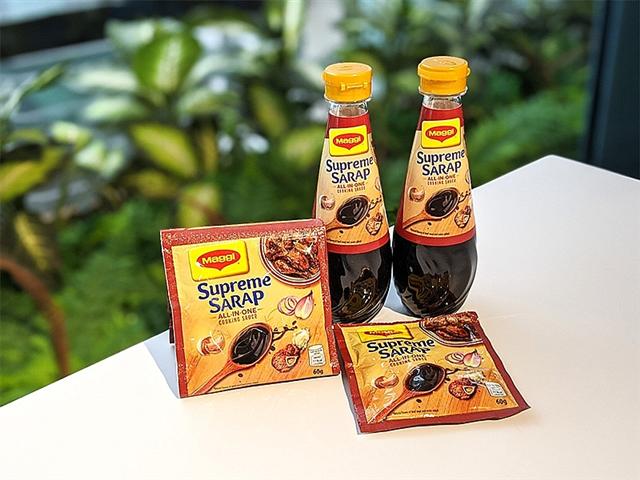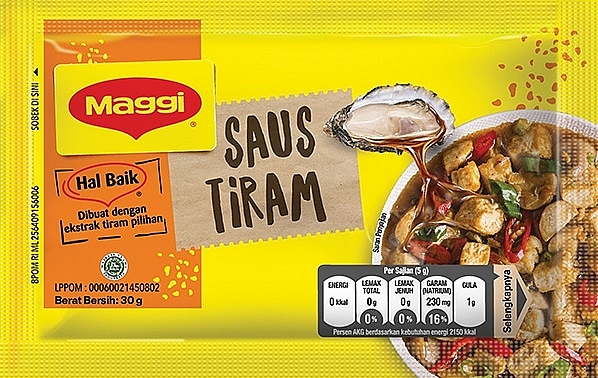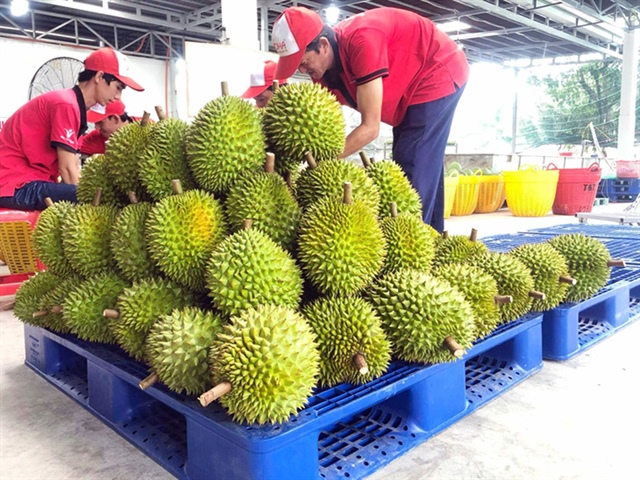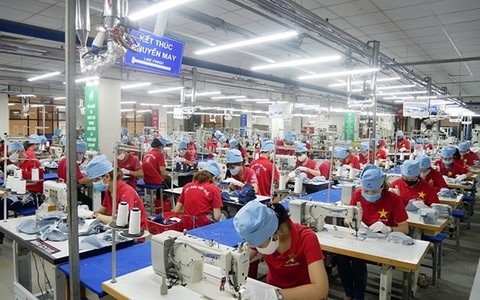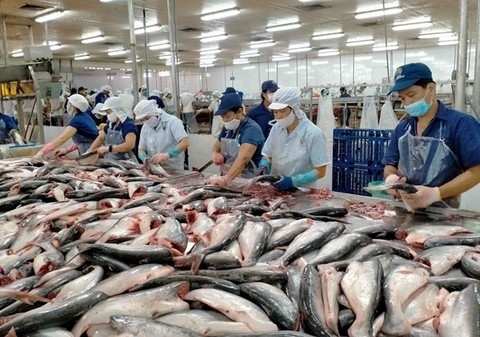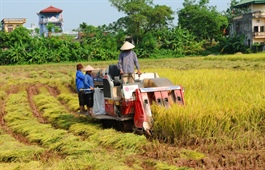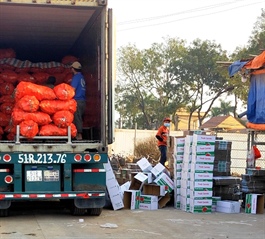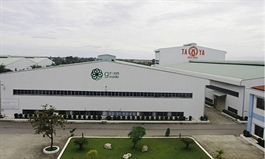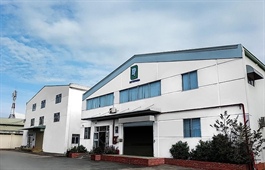Nestlé Vietnam bringing Maggi products to the world
Nestlé Vietnam bringing Maggi products to the world
Carving out for itself a reputation for being a force for good in the corporate community and being very local in its operations through sourcing, talent pipeline, and corporate sustainability activities, Nestlé Vietnam is also becoming the Nestlé Culinary Hub for the entire region, lending its expertise to neighbouring markets in producing Maggi liquid products with a local flare such as soya sauce and oyster sauce.
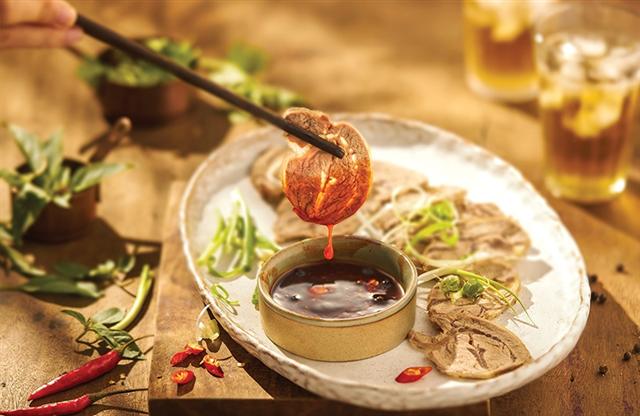
Nestlé Vietnam bringing Maggi products to the world
|
In 2020, Nestlé Vietnam exported the highest volume of Maggi products ever – an explosion that has been years in the making. Nestlé Vietnam has been positioned to scale up into the Nestlé Culinary Hub for the entire region, with conscious efforts being made over the course of years to introduce an all-in-one cooking sauce for Thailand and the Maggi Supreme Sarap cooking sauce for the Philippines – both created exclusively for these markets but produced in Vietnam.
As in everything, the company has approached the task with its signature mix of local touch married to its globally cultivated expertise and brand strength. As the first strategic step, the all-in-one cooking sauce was developed in 2018 by a collaboration between Nestlé Vietnam and Nestlé Thailand to fit the taste profile of Thai customers and cuisine. The product went on to become Nestlé Vietnam’s key export product under the Maggi brand.
|
|
This success was repeated in 2020, where with its credentials from Thailand, Vietnam was once again chosen to supply the Philippines market with the new, exclusive Maggi Supreme Sarap cooking sauce. The product is a key item for Nestlé Philippines and was rolled out in the mainstream market with strong success since the launch.
Le Thi Thanh Mai, Inter Market Supply manager at the corporation explained, “The Maggi brand carries a strong heritage not only in Vietnam but all over the world. Nestlé Vietnam, with a wide range of Maggi culinary products – from Maggi Soya Sauce and Maggi Oyster Sauce to Maggi Bouillon – is a prolific exporter in the region. We are excited to send the best products of Nestlé Vietnam to the world.”
“These two products contributed significant volumes to our exports,” she added. “In addition, with continuous improvements to our products and superb agility in manufacturing capabilities, we were able to export Maggi products to high-standard markets like Japan, Australia, and the United States.”
Maggi products are banking on their firm grasp of the taste profiles of Vietnamese expatriates that are the brand’s main consumer base.
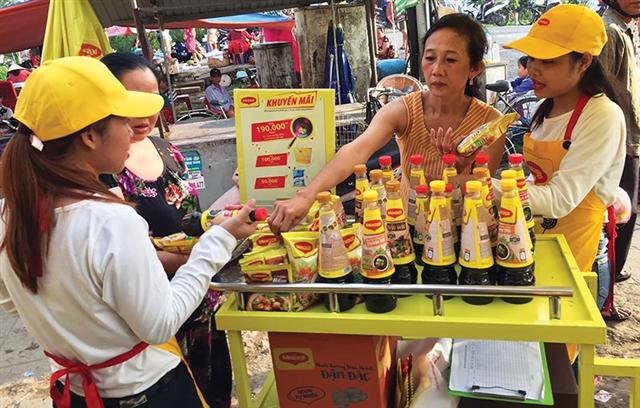
Maggi’s mobile selling to people living in rural Vietnam
|
“In the US and EU, we mainly introduce our Maggi culinary sources in ethnic channels such as Asian and gourmet markets, serving the Asian community with a particular focus on Vietnamese communities,” said Mai.
Offering an an unmissable taste of home for Vietnamese people living and working abroad, Vietnamese Maggi products are maximising their gains from the unparalleled understanding of the Vietnamese palate, while at the same time utilising their acquired expertise to map out taste profiles to collaborate with other regional brands to do the same and launch exclusive products for them.
Will Mackereth, supply chain director of Nestlé Vietnam said, “Export has always been an integral part of Nestlé Vietnam’s business. With the growing volume of export products from Nestlé Vietnam, especially under the Maggi brand, we are looking forward to becoming the Nestlé Group’s Maggi Culinary Hub of ASEAN.”
|
Export difficulties for sauces and condiments While the consumption of sauces, spices, and condiments has shot up during social distancing and lockdown measures around the globe with the rise of home cooking, producers are still experiencing difficulties in exporting new products to new markets. As shared with VIR by Nguyen Huynh Dat, general director of Viet Nhat Technology and Food Production JSC, tariffs on condiments can mount up to 25 per cent, while profit margins stand at only about 40 per cent. At the same time, despite consumers now shifting focus to health factors, choices remain heavily dependent on prices. Therefore, in addition to opening new production facilities, large producers are racing to reduce production costs, for example by using plastic instead of glass bottles and different packaging materials, which can save up to 10-25 per cent, according to research by Nielsen. |


